Polish Aid in Lebanon. PCPM Develops the Akkar Region
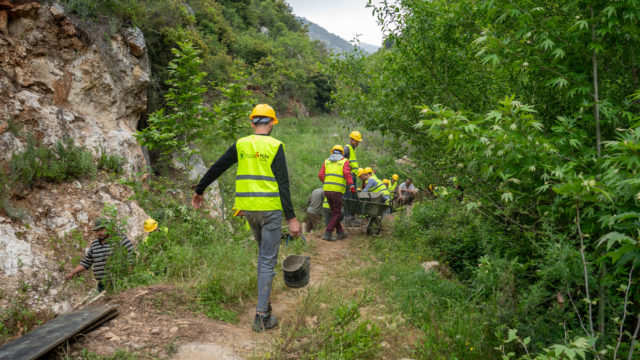

The Polish Center for International Aid (PCPM) in Kobayat is the largest non-governmental organization working in the Akkar region. “There used to be about 30 NGOs here, but their number has been steadily decreasing,” says one resident. “PCPM is the largest and focuses not only on humanitarian aid but also on development.”
The PCPM Foundation has been operating in Akkar in northern Lebanon since 2012. This region is particularly affected by the consequences of the Syrian crisis and the deepening economic crisis in Lebanon. It hosts numerous Syrian refugees as well as Lebanese families in difficult situations.
When the Polish organization began aid in this part of the country, it responded to the refugee crisis caused by the Syrian civil war. However, 2011 triggered a domino effect of further crises in Lebanon, which deepened the country’s economic collapse.
Short history of crises
Over the last 15 years, Lebanon has experienced a series of overlapping and worsening crises with catastrophic effects on the country and its inhabitants. After the outbreak of the Syrian war, over one million refugees arrived in Lebanon. Although the exact number was never determined, optimistic estimates suggest that for every four Lebanese residents, there was one Syrian. No country has accepted such a large number of refugees relative to its population. Lebanon could not cope and had to rely on aid organizations, but the scale of the problem was too large. The Syrian war unfortunately continued, and even in 2025, after the fall of Bashar al-Assad’s regime, stability cannot be claimed.
Lebanon also suffered from internal problems, including political stagnation and the lingering effects of a devastating civil war from 1975-1990. This led to an economic collapse in 2019, described by the World Bank as one of the worst globally since the mid-19th century. Causes included the collapse of the financial system, poor economic management, lack of structural reforms, and loss of investor confidence. The crisis’s consequences are dramatic: massive devaluation of the Lebanese pound, hyperinflation, widespread poverty (over 80% of the population lives below the poverty line), high unemployment, shortages of basic goods, medicines, and fuel, and paralysis of the public sector.
At one point, electricity was available only for one hour a day, paralyzing daily life, hospitals, businesses, and key economic sectors.
This was compounded by the devastating Beirut port explosion in 2020.
When the situation began to stabilize slightly but remained critical, a violent conflict erupted in the south, where Israel launched heavy bombings mainly targeting Hezbollah, but strikes affected the entire country.
“Polish Humanitarian Zone”
PCPM assists both southern Lebanon in the capital and most importantly focuses its work on the Akkar district. This allows it to maximize the use of resources in the region.
Due to rapid climate changes, the weather cycle has drastically changed. In the mountainous areas around Kobayat, access to water has worsened year by year. Therefore, irrigation channels are crucial, especially in a region where most people depend on farming.
– When we started building the channel three years ago, it was mostly rocks here. Now the first apple seedlings are growing,” says Jean Claude, an engineer working for PCPM.
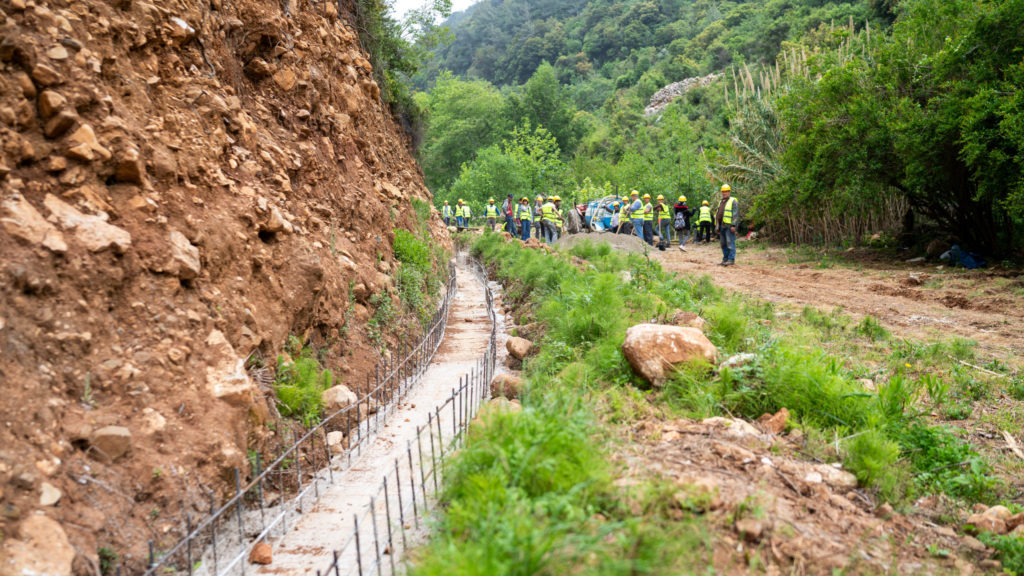
PCPM has been steadily building channels that carry water from the mountains to the fields. Importantly, this water is “free,” and farmers in the community only need to agree on when to use it. The principle is simple: gravity moves water down the channel to villages, where a metal gate near the field blocks the flow, causing water to spill into the field.
– Thanks to this, farmers can expect better yields. This not only increases self-sufficiency but also allows them to earn more,” says Elie Keldany from PCPM.
In total, the Foundation has built over 10 kilometers of channels in Akkar.
Wastewater treatment station
Water-related work also includes modernizing the sewage treatment plant. Equipment was replaced, and solar panels were installed to allow the plant to operate even during power outages.
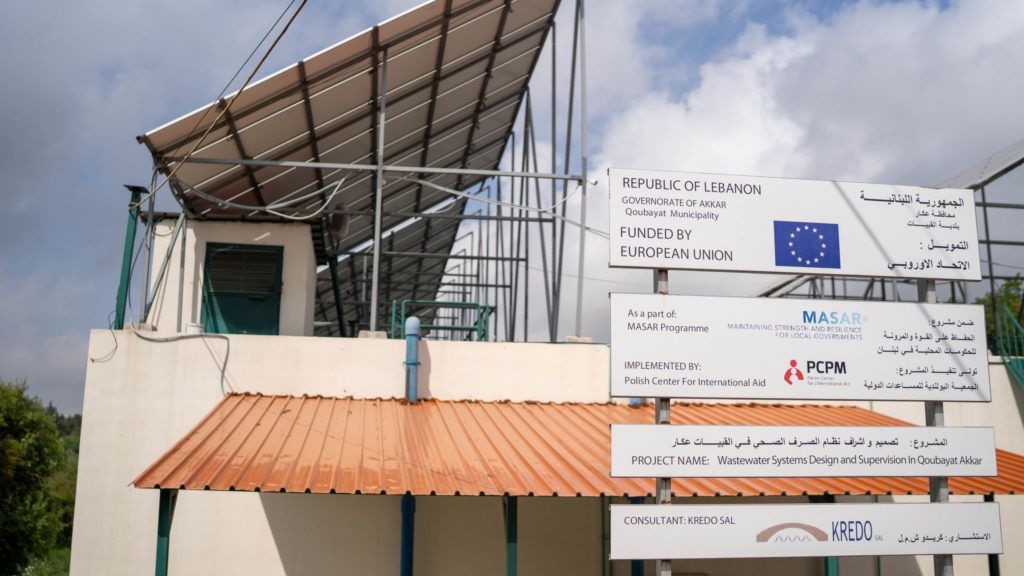
– Municipalities are very poor; now the electricity is somewhat stable, but inflation soared, and local administrations often lacked funds for fuel,” says one employee. – “Now the treatment plant is self-sufficient, and we do not pollute the water,” he adds.
These works were done during the country’s worst energy crisis, but villages are still being connected to the sewage system.
For example, the Kobayat-Qatlbe area, located on two hillsides separated by a mountain river, is now connected to the sewage system and linked by a bridge built during the project, easing residents’ lives.
In 2024, PCPM completed deepening the Al-Ostuan river, which after winter snowfalls turned into a raging stream destroying crops. This phenomenon has become more common, but thanks to channels and river deepening, water is better controlled and nourishes crops instead of destroying them.
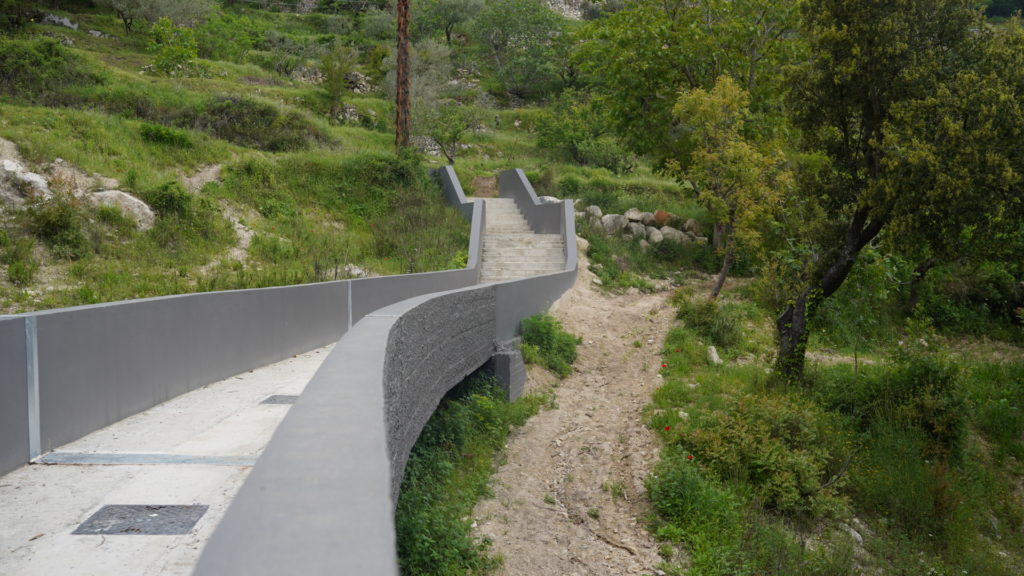
Unfortunately, the region was also hit by a fire that destroyed large forest areas along the main road from Kobayat to Hermel.
– The fire spread rapidly; it was a miracle no one died, but without the forest, water had nowhere to drain and started eroding the road, which eventually collapsed,” says Elie Keldany.
This road is the most important for the area and was a priority for local authorities. However, there were no funds for repairs, so PCPM was asked for help. By May 2025, the road is passable, wider, and has a large drainage channel designed to protect it from future erosion.
Most of PCPM’s hydrotechnical work is financed by the Polish Aid program of the Ministry of Foreign Affairs of the Republic of Poland.
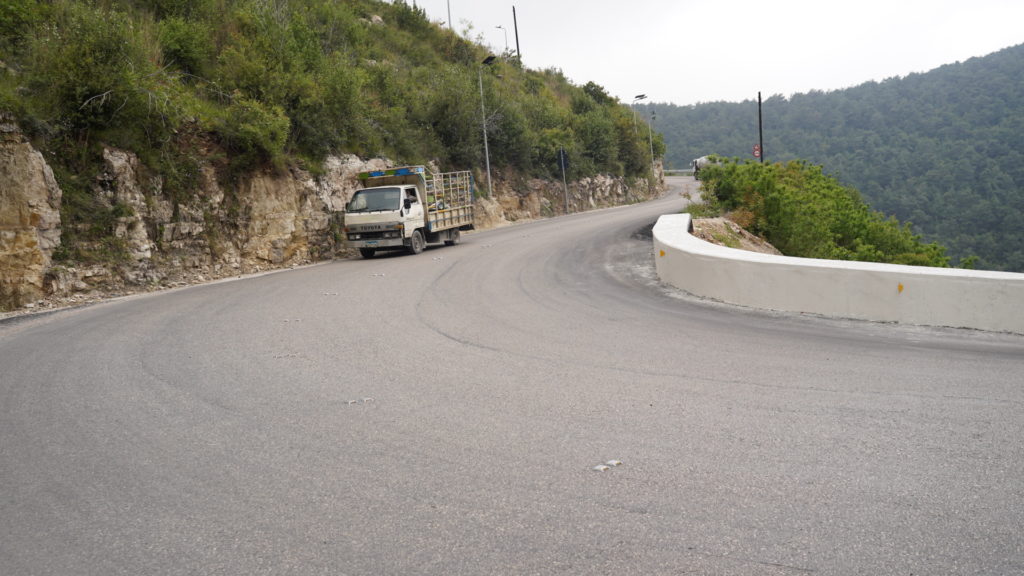
Humanitarian and Health Aid
Residents around Kobayat have long struggled to make ends meet. Therefore, PCPM started additional support programs for the most vulnerable families.
One such family is Ahmad Ibrahim’s, with 13 members. Their situation was never stable, but when the 2019 crisis and inflation hit Lebanon, hunger appeared. Ahmad worked all his life in agriculture but injured his back and cannot work. He is the sole breadwinner, as his eldest son is only 15.
– We receive small government support ($100 for the whole family), but it’s not enough. PCPM helped a lot in the last six months. The foundation provided all food and hygiene products we previously had to buy, so we could save the government money,” Ahmad says.
There are many such stories in Lebanon, and recent global upheavals do not bode well. The clinic in Bire, which serves about 10,000 people, may soon close. PCPM purchased professional equipment for it in 2017, still in use today. Unfortunately, due to the closure of the USAID program, the clinic might shut down, leaving thousands without healthcare access because private facilities are too expensive.
PCPM focuses on this region, but this is only a part of its work. The Polish organization has also installed solar lamps, purchased equipment for fire departments, and provided a van for the clinic that now serves Syrian refugees. Unfortunately, each solved problem brings a new one, so every contribution helps PCPM continue developing and assisting Akkar. Every donation to pcpm.org.pl/liban helps PCPM keep working.